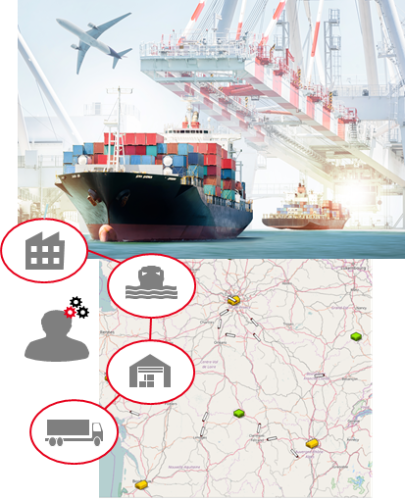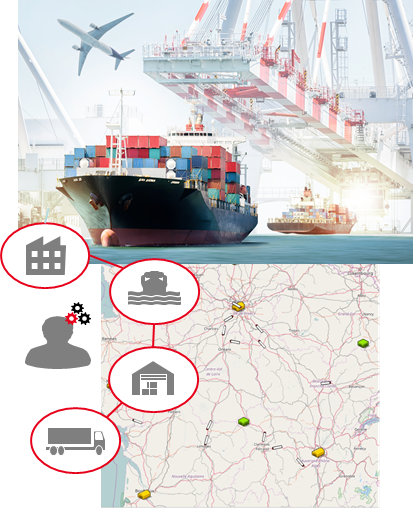Supply Chain Design – Strategic Allocation in the Logistics and Production Network
Production and logistics networks of globally operating companies are often highly complex. To create a basis for the assessment and planning of networks despite the high market volatility and complex production and distribution structures, a holistic approach is needed. In this context, the philosophy and methodology of “Total Cost of Ownership” (TCO) provides an approach for considering the relevant costs of the entire supply chain. This overall costs perspective supports a more transparent information basis and understanding of the cost structure of supply chains. Based on the assessment of different scenarios, the existing allocation can be questioned and decisions regarding the strategic configuration of supply chain designs can be prepared.
The scope of the cooperative research project is to develop an exemplary decision-making tool for the supply chain design of a product group from a TCO perspective. Real data is used to investigate the allocation of the product group in the logistics and production network. Thereby, the focus is on the question which alternative possibilities for sourcing, production and distribution exist in the network. The overall objective is to identify how changes in the design of supply chain scenarios affect the overall costs from the perspective of the TCO approach.
In order to consider mutual dependencies, for example the capacity utilization of production facilities and means of transport, as well as the effect of stochastic and dynamic influencing factors, an agent-based simulation model is developed as a methodological tool for scenario analysis. By changing production sites or configurations in the logistics network different alternatives can be visualized and compared in simulation experiments and the overall supply chain costs can be identified. The validity and plausibility can be checked by repeating the simulation experiments for different stochastic parameter specifications.
Key Data:
Runtime: May 2017 until March 2018
Partner: Fresenius Kabi Deutschland GmbH





